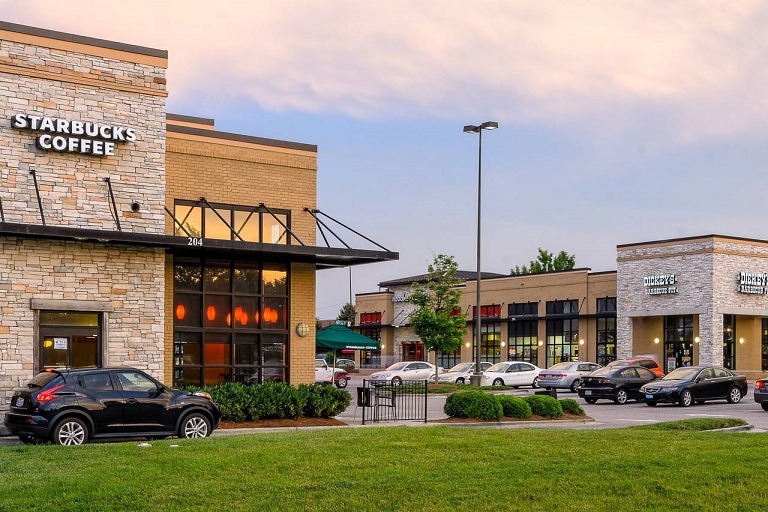
The retail commercial real estate sector is on the brink of a significant transformation. Various factors have converged to create a dynamic environment where traditional retail spaces are reimagined to meet contemporary needs. The landscape is shifting from evolving consumer behaviors and technological advancements to economic pressures and new retail concepts. This article explores the reasons behind this reset and what it means for the future of retail commercial real estate.
E-commerce has revolutionized how people shop, leading to a substantial shift in consumer behaviors. Online shopping offers convenience, variety, and often lower prices, making it an attractive option for many consumers. This trend has significantly impacted brick-and-mortar retail, prompting retailers to rethink their strategies and adopt a more digital-first approach. The growing preference for online shopping necessitates reevaluating physical retail spaces to align with consumer expectations.
Modern consumers are increasingly seeking experiences rather than just products. This shift has given rise to experiential retail, where stores offer engaging environments and unique interactions. Retail spaces are being transformed into destinations that provide memorable experiences, combining shopping with dining, entertainment, and social activities. This focus on creating immersive experiences drives a reset in how retail commercial real estate is designed and utilized.
Technology is playing a crucial role in the evolution of retail spaces. Innovations such as augmented reality (AR), virtual reality (VR), and artificial intelligence (AI) are enhancing the shopping experience. Retailers are leveraging these technologies to create interactive and personalized customer experiences. For example, AR can enable virtual try-ons, while AI can provide customized recommendations. These advancements are prompting a redesign of retail spaces to incorporate technological elements seamlessly.
The availability of vast amounts of data has transformed how retailers approach their real estate strategies. Data analytics provide insights into consumer behavior, foot traffic patterns, and market trends. Retailers can use this information to make informed decisions about store locations, layout designs, and inventory management. Harnessing data effectively allows for more strategic planning and optimization of retail spaces, contributing to the sector’s reset.
The economic landscape has been marked by uncertainty, influencing consumer spending habits and retail performance. Retailers have had to navigate rising costs, supply chain disruptions, and shifting consumer preferences. These economic pressures have led to a reassessment of retail real estate portfolios, with many businesses opting to downsize or close underperforming stores. This trend is reevaluating how retail spaces are used and managed.
As retailers adapt to changing market conditions, there is a growing trend towards smaller store formats. These smaller spaces offer several advantages, including lower operating costs, increased flexibility, and the ability to create more intimate and curated shopping experiences. The shift towards smaller formats is prompting a reset in retail real estate, with a focus on maximizing efficiency and optimizing space utilization.
Pop-up shops and temporary retail spaces have gained popularity as innovative retail concepts. These short-term stores allow retailers to test new markets, launch products, and create buzz without the commitment of long-term leases. Pop-up shops provide a dynamic and flexible approach to retail, enabling brands to stay agile and responsive to market trends. This trend is reshaping the retail real estate, offering new opportunities for landlords and tenants alike.
Mixed-use developments combining retail, residential, office, and entertainment spaces are becoming increasingly prevalent. These developments create vibrant, multi-functional environments that attract diverse consumers. By integrating different uses within a single development, mixed-use projects enhance foot traffic and create synergistic benefits for retailers. The rise of mixed-use developments drives a reset in retail commercial real estate, emphasizing the importance of creating holistic and engaging spaces.
Sustainability has become a key consideration in retail commercial real estate. Retailers and developers prioritize eco-friendly design and construction practices to reduce their environmental impact. This includes using sustainable materials, energy-efficient systems, and green building certifications. The focus on sustainability is leading to a reset in how retail spaces are built and operated, aligning with the growing consumer demand for environmentally responsible businesses.
Sustainable retail spaces often emphasize community engagement and social responsibility. Retailers are increasingly involved in local initiatives, supporting community events, and promoting local products. By fostering strong community connections, retailers can enhance their brand reputation and customer loyalty. This emphasis on community engagement is influencing the design and function of retail spaces, encouraging a more inclusive and socially conscious approach.
The future of retail and commercial real estate will be characterized by flexibility and adaptability. Retailers and landlords must be prepared to pivot in response to evolving consumer preferences and market conditions. This includes flexible lease terms, reconfigurable spaces, and adaptable business models. By prioritizing flexibility, stakeholders can better navigate the uncertainties of the retail landscape and capitalize on emerging opportunities.
Investing in technology will continue to be crucial for the success of retail spaces. Retailers should explore integrating advanced technologies into their operations and enhancing the customer experience. This includes adopting omnichannel strategies, implementing intelligent building technologies, and leveraging data analytics. Technology will play a central role in resetting retail commercial real estate, driving innovation and efficiency.
The retail commercial real estate sector is poised for a reset, driven by changing consumer behaviors, technological advancements, economic pressures, and the emergence of new retail concepts. As the landscape evolves, retailers and landlords must adapt and embrace new strategies to thrive in the competitive market. By focusing on flexibility, sustainability, and technological innovation, the retail commercial real estate sector can navigate this reset successfully and emerge stronger, creating engaging and resilient spaces for the future.
Enter your details below and we will be in touch.
Providing Commercial Real Estate Brokerage Services for Chattanooga, Cleveland and Dalton
Office • Retail • Healthcare • Hospitality • Industrial • Warehouse • Land • Multi-Family